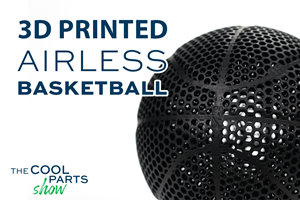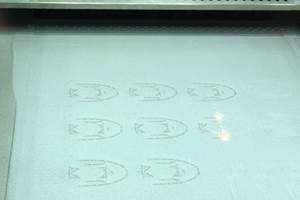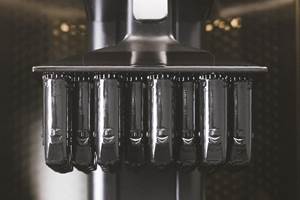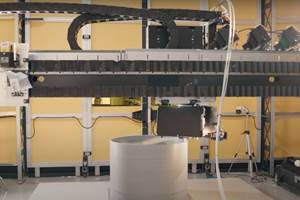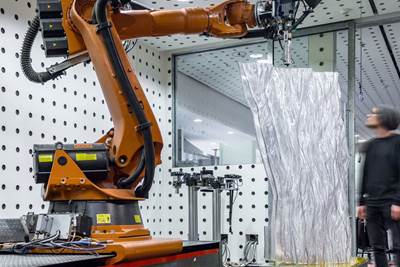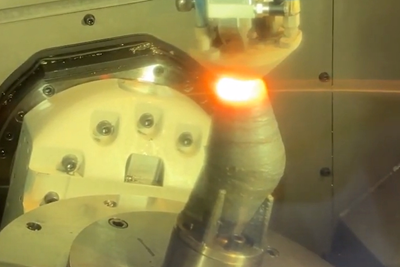Formlabs’ Elastomeric Resins Expand Options for Patient-Specific Care
Formlabs’ first elastomeric BioMed materials — BioMed Elastic 50A Resin, BioMed Flex 80A Resin and IBT Flex Resin — can streamline workflows and reduce labor time for flexible, dental and medical biocompatible parts.
Share
BioMed Elastic 50A Resin is suited for long-term skin contact and short-term mucosal membrane contact for flexible patient-matched medical device components, comfortable medical devices and tissue medical models. Photo Credit: Formlabs
Formlabs has added three health care-focused materials to its library with BioMed Elastic 50A Resin, BioMed Flex 80A Resin and IBT Flex Resin. The two BioMed materials can expand the applications for 3D printing in health care, reducing the time and costs associated with traditional production methods (such as molding) for surgical models, medical devices and more. The IBT Flex Resin is designed with tear-resistant, accurate and transparent properties for dental applications, including 3D printed direct composite restoration guides and indirect bonding trays.
According to Formlabs, since the pandemic 3D printing applications in health care and dental have grown with facilities, health networks and providers turning to 3D printers and medical materials to satisfy demand for patient care to solve supply chain challenges. As providers continue recognizing the benefits of patient-specific care that is possible with 3D printing, Formlabs is supporting the momentum with new materials that will reduce production costs and time, expanding access to patient-specific, directly 3D printed dental guides, surgical models, medical components and medical devices.
“Adoption of 3D printing is accelerating in health care and dentistry, bringing patients the benefit of personalized care that improves comfort and outcomes,” says Guillaume Bailliard, Formlabs president of Health Care. “Formlabs’ materials development team is dedicated to delivering new materials and solutions that will advance 3D printing in health care and dental workflows, and expand the possibilities for patient-specific care. By adding these new flexible and elastomeric materials to our extensive biocompatible and dental materials library, we are ushering in a new wave of personalized health care and digital dentistry that will bring the benefits directly to patients.”
BioMed Elastic 50A Resin and BioMed Flex 80A Resin are biocompatible materials with ISO 10993 and USP Class VI certifications that enable an expanded personalized approach to health care. These materials are suited for long-term skin contact and short-term mucosal membrane contact for flexible patient-matched medical device components, comfortable medical devices and tissue medical models for surgeons to reference in the operating room. Each material delivers varying flexibility to suit different applications.
BioMed Elastic 50A resin is a soft and elastic material for applications requiring comfort, biocompatibility and transparency. The material’s elasticity will suit mass-personalized medical devices requiring long-term skin contact and patient-specific fit, soft-tissue models, gastrointestinal models for fluidics visualization or complex neurovascular models for surgeons to reference in the operating room.
BioMed Flex 80A Resin is a firm, flexible, medical-grade material for applications requiring durability, biocompatibility and transparency. The ability to directly print this medical-grade resin can reduce workflow times by eliminating molding to directly produce flexible, patient-specific medical devices or firm tissue medical models surgeons can reference in the operating room.
IBT Flex Resin is a Class I FDA registered, biocompatible material that delivers consistent, predictable outcomes for printing highly accurate, indirect bonding trays and direct composite restoration guides. With enhanced flexibility, tear resistance and translucency, this material can enable dental labs and clinics to save time and costs while maintaining the accuracy needed for the seamless and precise application of orthodontic brackets and restorative composite materials.
- Learn about Formlabs’ efforts to ease treatment for children with severe burns using face masks produced with 3D printing. Working with Formlabs, the Romans Ferrari Center developed a digital workflow for creating custom compressive masks for treating facial burns using 3D scanning and 3D printing — without having to touch the patient.
- Read about Formlabs’ development of tough elastomer powder for strong, functional, skin-safe parts. The TPU 90A powder is the first elastomer material for its Fuse Series 3D printers and which enables durable, skin-safe parts at a low cost for a variety of industries, including health care, consumer goods, manufacturing and engineering.
- Here are some more additions to Formlabs Material portfolio for dental and medical applications. Formlabs’ Dental LT Comfort Resin is a flexible, durable material for comfortable long-term occlusal splints, nightguards and bleaching trays. BioMed Durable Resin is approved for human contact, and enables durable biocompatible and impact-resistant medical devices and instruments.
Related Content
Airless Basketball Shows Promise of 3D Printed Lattices: The Cool Parts Show Bonus
Successfully matching the performance of a standard basketball demonstrates the control possible over the mechanical properties of digital materials.
Read MoreWhat is Powder Bed Fusion 3D Printing?
Whether in metal or polymer, with a laser or an electron beam, powder bed fusion (PBF) is one of the most widely used 3D printing techniques.
Read MoreAM 101: Digital Light Synthesis (DLS)
Digital Light Synthesis (DLS) is the name for Carbon's resin-based 3D printing process. How it works and how it differs from stereolithography.
Read MoreLarge-Format “Cold” 3D Printing With Polypropylene and Polyethylene
Israeli startup Largix has developed a production solution that can 3D print PP and PE without melting them. Its first test? Custom tanks for chemical storage.
Read MoreRead Next
3D Printing Brings Sustainability, Accessibility to Glass Manufacturing
Australian startup Maple Glass Printing has developed a process for extruding glass into artwork, lab implements and architectural elements. Along the way, the company has also found more efficient ways of recycling this material.
Read MoreAt General Atomics, Do Unmanned Aerial Systems Reveal the Future of Aircraft Manufacturing?
The maker of the Predator and SkyGuardian remote aircraft can implement additive manufacturing more rapidly and widely than the makers of other types of planes. The role of 3D printing in current and future UAS components hints at how far AM can go to save cost and time in aircraft production and design.
Read MoreHybrid Additive Manufacturing Machine Tools Continue to Make Gains (Includes Video)
The hybrid machine tool is an idea that continues to advance. Two important developments of recent years expand the possibilities for this platform.
Read More



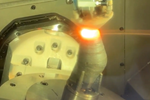
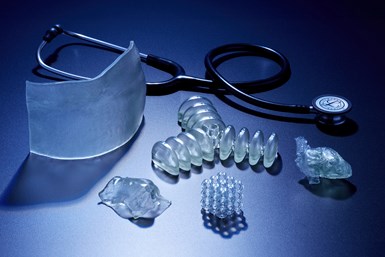
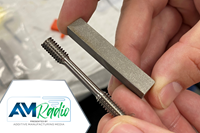
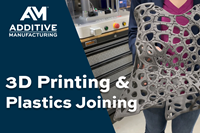
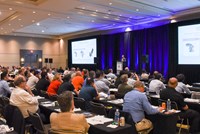
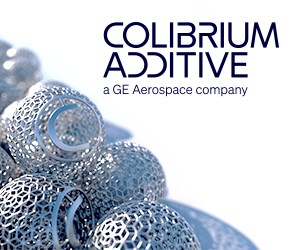


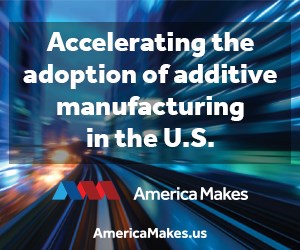
.png;maxWidth=300;quality=90)




